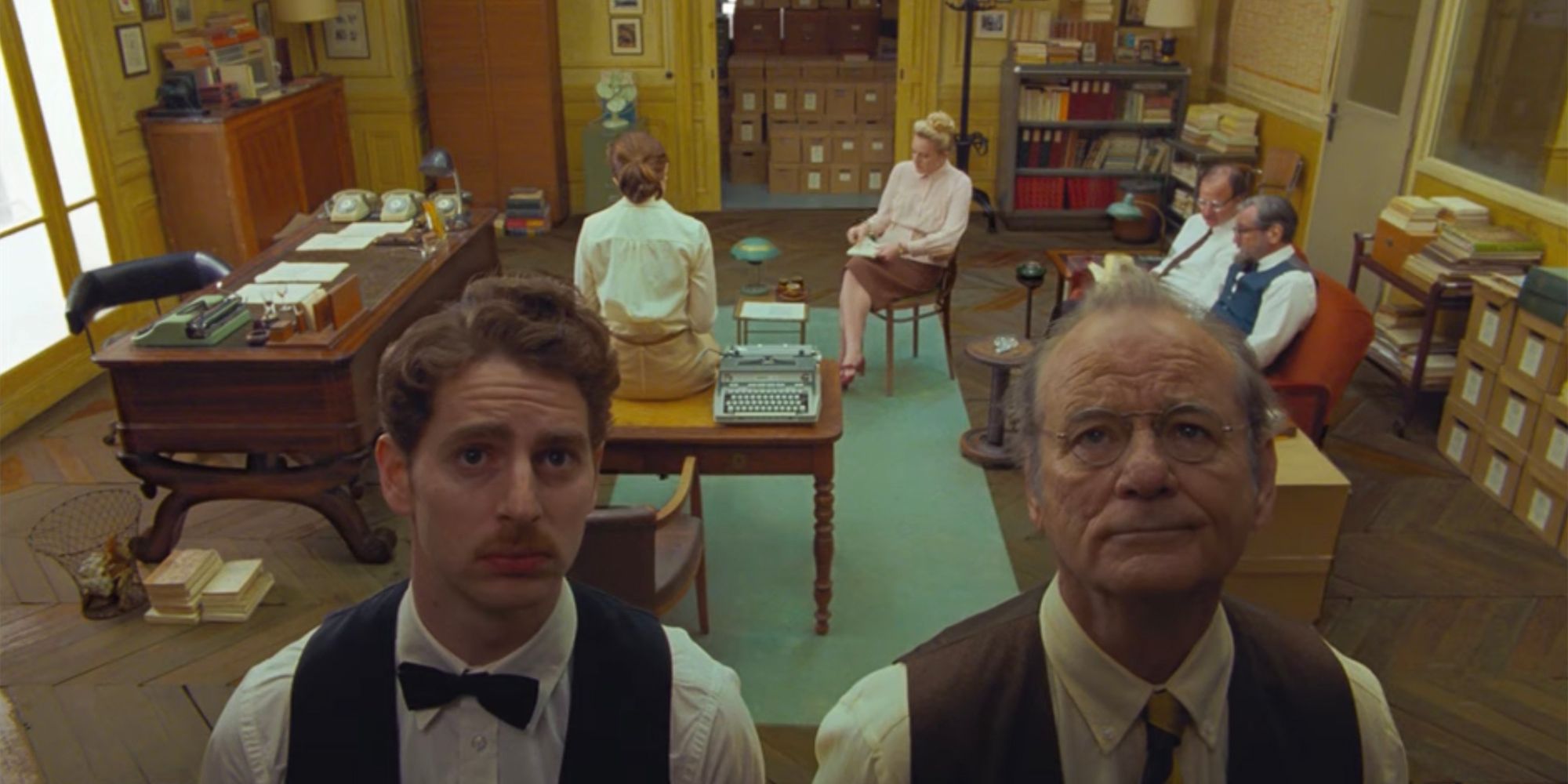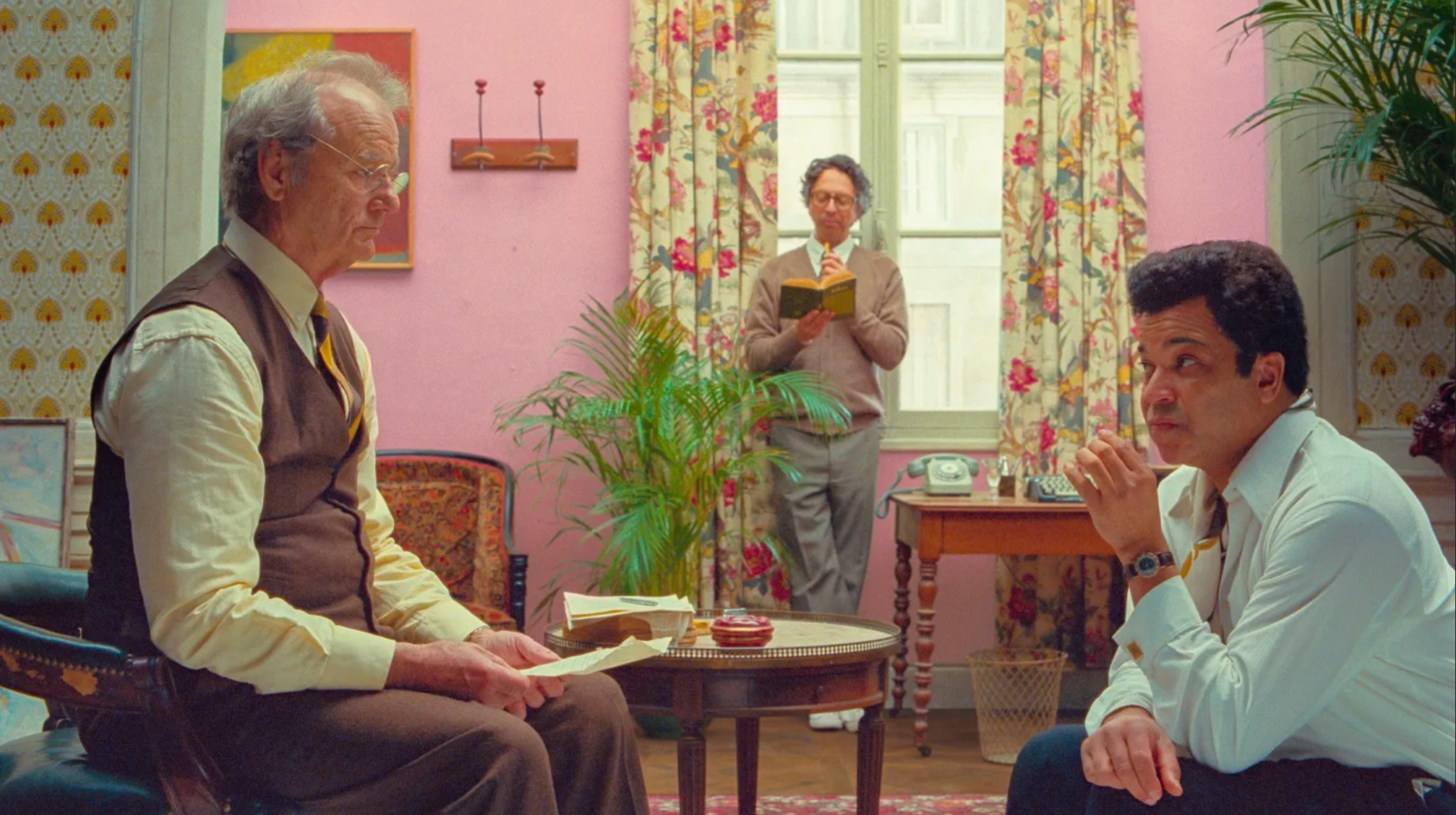Wes Anderson films are known for their sense of whimsy more than their sense of verisimilitude. And in terms of style, the writer/director's latest feature, The French Dispatch, is no different. But its episodic story structure and subject matter might make one question whether this one has its roots in a true story. The film is, after all, about a magazine that publishes human interest stories, and there's a long history of movies about journalism.
In The French Dispatch, a staff of intrepid, somewhat twee reporters puts together what will be their final issue after the death of their beloved editor, Arthur Howitzer, Jr. (Anderson muse, Bill Murray). The movie unfolds in subtitled segments. In "The Concrete Masterpiece," a violent prisoner (Benicio Del Toro) becomes an art world sensation, and investors become suspicious and impatient when it appears he's failed to produce the masterpiece they've paid for.
In "Revisions to a Manifesto," Frances McDormand's middle-aged correspondent becomes involved with a teenage revolutionary played by Timothée Chalamet and helps him refine his political message. In "The Private Dining Room of the Police Commissioner," the said Commissioner's kid is kidnapped while a writer (Jeffrey Wright) is interviewing him about his acclaimed personal chef. The film is occasionally interrupted by more minor episodes (one involves Owen Wilson and a bicycle) and callbacks to the main plot -- the efforts to get the issue to print.
But while these particular stories are fictional (mostly on account of changed names and details), the central conceit, as well as some of the characters and plot points, do have factual inspirations. Anderson has long been a fan of The New Yorker, so much so that he used to collect copies for fun as a child. He intended The French Dispatch to be "a love letter to journalists" and fashioned Howitzer after famed long-time New Yorker editor Harold Ross, who led the publication up until his death. Writers like Joseph Mitchell, Mavis Gallant and James Baldwin also served as the basis for Wilson, McDormand and Wright's characters. For example, Gallant really did write a piece (called "The Events in May: A Paris Notebook") about a protest movement. Adrian Brody and Tilda Swinton also appear as characters with real-world counterparts (an art groupie and art dealer) whose exploits were documented in The New Yorker.
The film's anthology-like format is itself a tribute to The New Yorker, with stories of varying topic, length and tone -- but always of the same high quality -- all finding a home in the same magazine or, in the case of The French Dispatch, the same film. Though it doesn't seem to have a strong, single narrative and it isn't strictly speaking nonfiction, Anderson's latest has a deeply unified and timely theme. His editor and writers want to tell the truth about the world, no matter how much it costs and no matter how little money those stories make. The important thing is just to tell them, and in that way, The French Dispatch isn't just a love letter to journalists but a passionate defense of journalism itself.
To see the story unfold for yourself, The French Dispatch is currently streaming on HBO Max.


